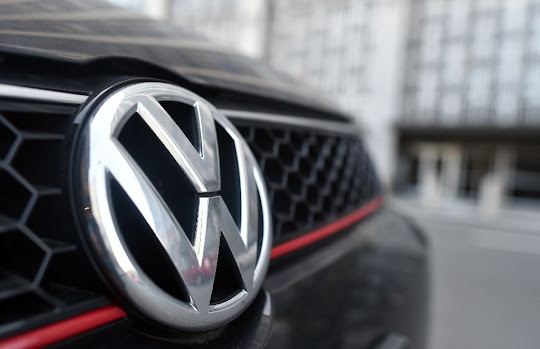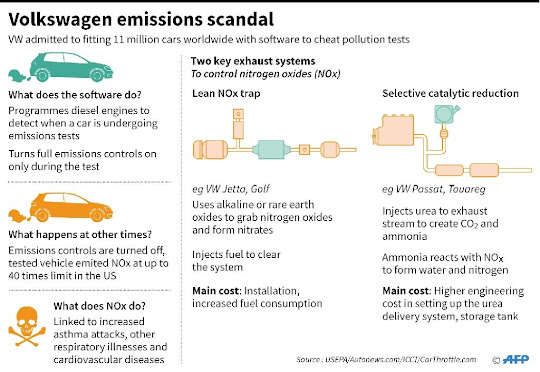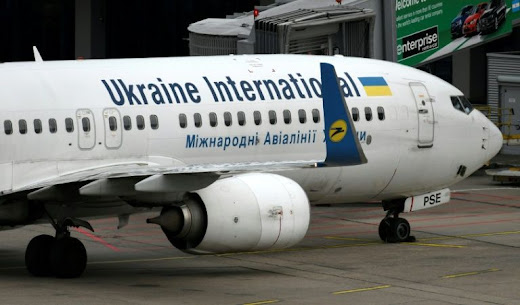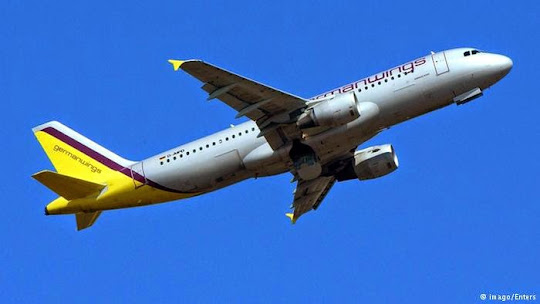Yahoo – AFP,
Pierre-Henry DESHAYES, April 8, 2018
 |
A computer generated image of the hybrid-electric regional aircraft being developed
by Zunum Aero, a start-up partly financed by US aeronautics group Boeing that could
enter service as soon as in 2022. (AFP Photo) |
Oslo (AFP)
- Will we someday be able to fly without the guilt of causing environmental
damage? A handful of firms and regulators hope that the electric revolution in
cars will also take to the skies, helping the industry cope with an expected
boom in travel and reduce greenhouse gas emissions.
"Many
people say that we must get rid of air transport because we will never be able
to deal with emissions and noise, but this is an outdated approach," said
Norwegian Transport Minister Ketil Solvik-Olsen, who recently hosted an
aviation conference in Oslo.
Norway, the
largest oil and gas producer in western Europe, is paradoxically a pioneer in
the field of electric transport. The Nordic nation aims for all new vehicle
registrations to be zero emission by 2025 and launched a first electric ferry
in early 2015.
After land
and water, the northern kingdom is now turning to the sky with the goal of
electrifying all short haul flights in just over 20 years.
"In my
mind, there is no doubt: by 2040 Norway will be operating totally
electric," said Dag Falk-Petersen, head of the country's public airport
operator, Avinor.
Tesla of
the skies?
Air
transportation's impact on global warming is estimated at around five percent
through CO2 emissions and other substances, including nitrogen oxide and water
vapour.
As the
number of air passengers is expected to almost double by 2036 to 7.8 billion
per year, according to the International Air Transport Association's (IATA)
projections, aviation's impact is on a course to increase substantially if
nothing is done.
Meanwhile,
the airline industry aims to cut its CO2 emissions in half by 2050 from 2005
levels.
 |
Zunum Aero hopes that cheaper operating costs will entice airlines to
go electric (AFP Photo) |
While the
international umbrella group Climate Action Network (CAN) says these goals are
unrealistic, some airlines are beginning to look at electric-powered aircraft
as an answer.
The small
regional carrier Wideroe Airlines, operating in Norway's far north, plans to
renew its fleet of twin-engine Bombardier Dash 8 planes with electric-powered
aircraft by 2030.
"Aircraft
producers see that they have to do it because otherwise there will be a new
Tesla taking their positions," said Falk-Petersen, referring to how the
upstart US electric car manufacturer has shaken up the traditional automobile
industry.
Both of the
major manufacturers of large passenger aircraft, Airbus and Boeing, are
exploring the viability of electric planes.
Airbus aims
to develop a hybrid model called E-Fan X, and has teamed up with British engine
maker Rolls Royce and German industrial group Siemens. The first flight is
planned for 2020.
"One
of the biggest challenges is electricity storage," Glenn Llewellyn,
general manager for electrification at Airbus, told AFP.
As with
cars, the performance of batteries is a critical element, with the added
problem that they are heavier than fuel and carrying them into the air is the
most-energy intensive part of the flight.
"But
at the same time battery technology is probably the technology in the world
which has the most investment. So it will evolve," added Llewellyn.
'Any
place in the world'
Zunum Aero,
a start-up partly financed by US aeronautics group Boeing, meanwhile plans to
bring a 12-seat hybrid plane to the market by 2022.
"The
price that we're targeting is very much in line with the current aircraft but
the operation cost is just a fraction, it's literally 60 to 70 percent lower
than an equivalent aircraft in operation right now," said the startup's
founder Matt Knapp.
The
expected lower operating costs of electric planes, both due to cheap
electricity and simpler motors, means that the highly competitive airline
industry could end up adopting them quickly.
Airbus
offered several years ago updated aircraft with 15 percent fuel savings, and as
jet fuel is a major cost for airlines, they quickly placed orders for thousands
as they tried to get ahead of rivals.
The
transition to electric could also provide another advantage: they are much
quieter, meaning they may win exceptions to restrictions imposed due to noise
near residential areas.
Combined
with the fact that electric planes don't need such long runways, they could be
used at some smaller airports close to city centres.
Avinor said
switching to electric would also help airlines avoid any climate change related
penalties that regulators could impose, such as higher taxes and flying
restrictions.
Norway sees
itself as a good test bed for electric planes.
"There
are a lot of issues to deal with, with icy conditions, with heavy winds,"
says Widero CEO Stein Nilsen.
"But
if we can do that here in Norway, I'm certain that this air plane will cope
with any conditions in any place in the world."
Related Article:









